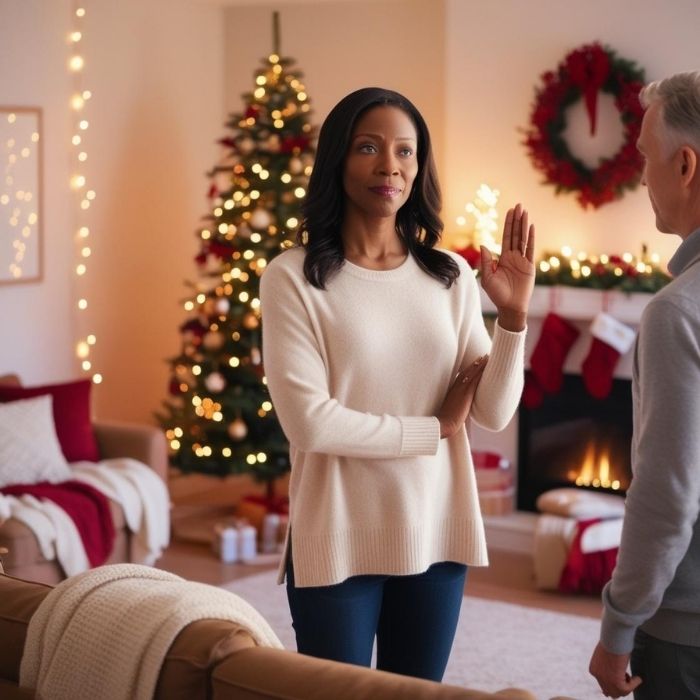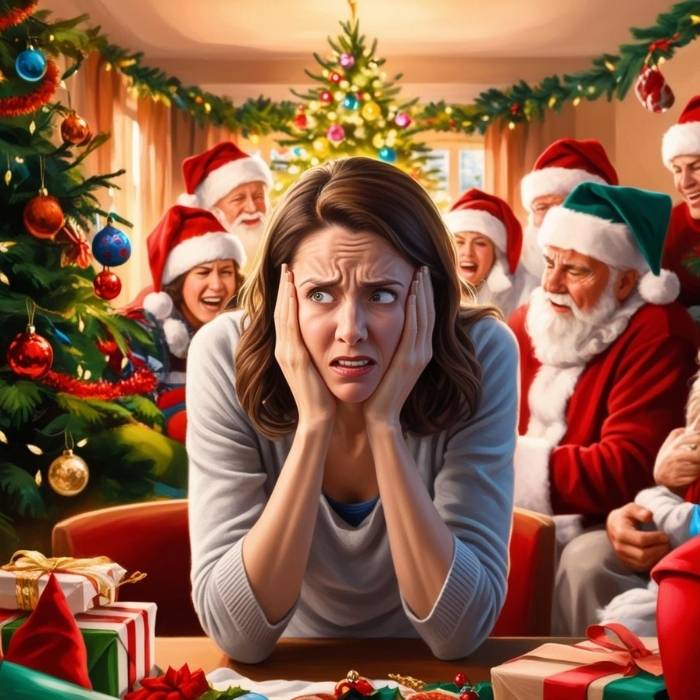Introduction: The Brain on Trauma and Holiday Stress
Add to this the heightened expectations, family gatherings, and disrupted routines of the holiday season, and it’s easy to see how holiday stress can leave trauma survivors feeling even more on edge. In fact, studies from Harvard Medical School report that around 62% of people feel their stress levels climb during this time. So if you have PTSD or unresolved trauma, it’s no wonder the holiday season might feel like it’s pushing you to your limit.
In this post, we’ll explore the specific ways the holidays can make PTSD symptoms worse—and offer some practical, trauma-informed strategies to help you manage.
Section 1: How the Holidays Amplify PTSD Symptoms
1. Family Dynamics and Relationship Triggers
On top of that, family gatherings can become political battlefields, especially in today’s polarized climate. If those viewpoints challenge core parts of who you are or feel personally invasive, these conversations can feel like personal attacks rather than the casual disagreements others might perceive. One way to manage this is by setting boundaries before you arrive, especially around conversations that might take a toll on your emotional energy.
2. Disrupted Routines and Loss of Control
For trauma survivors, the unpredictability of holiday events can mirror the chaos that their brains have been conditioned to fear, leading to heightened anxiety and a sense of losing control. Unfortunately, essential routines like sleep, exercise, and even therapy can fall by the wayside. To stay grounded, try to stick to a few core elements of your routine, even if that’s just getting up at the same time each day or eating lunch at the same time.
3. Heightened Emotional Demands of the Season
And sometimes, it’s the expectations from family and friends that feel overwhelming. Family members may ask you to travel or participate in traditions that don’t align with where you are in your healing journey, leaving you feeling stretched too thin. Setting realistic expectations and giving yourself permission to opt out or create new traditions can be a powerful step.
4. Overcommitment and People-Pleasing
One way to manage this is by setting boundaries that honor your emotional needs. Remember, saying “no” to one obligation can often mean saying “yes” to your needs. If you feel guilty, remind yourself that preserving your mental health isn’t rejecting anyone—it’s about taking care of yourself.
5. Financial Strain and Gift-Giving Pressure
One way to reduce this pressure is to focus on simplifying your approach to gift-giving. Set a budget that works for you, plan out gifts in advance, or consider alternatives like giving experiences or homemade gifts. Prioritizing financial boundaries can create room for a healthier holiday experience.
6. Loneliness and Isolation
If this resonates with you, try focusing on creating intentional connections with a small, trusted group or building solo traditions that bring you comfort. Reach out to a friend, participate in a small gathering, or find moments of joy through activities you love. Remember, connection doesn’t have to look a certain way.
7. Substance Use and Poor Coping Mechanisms
Consider setting personal limits on substances at gatherings and leaving if you feel pressured. If you know certain gatherings will involve substances, ask yourself if attending is the healthiest choice for you this season.
8. Seasonal Affective Disorder (SAD) and Depression
Staying mindful of SAD’s impact can help. Light therapy, spending more time outside, or simple self-care practices can all improve mood and energy, even when the days feel darker and colder.
Section 2: Practical Strategies for Managing PTSD and Holiday Stress Symptoms
1. Prioritize Your Needs and Values
2. Set Boundaries Early and Stick to Them
3. Maintain Your Wellness Routine
4. Develop Cognitive Flexibility
5. Manage Financial Stress with Intentional Gift-Giving
6. Prepare for Difficult Interactions
7. Limit Alcohol and Substance Use
8. Create New Rituals and Traditions
Conclusion: Navigating the Holidays with Intention and Self-Compassion
You Don't Have to Navigate This Alone!
If the holidays are feeling overwhelming or if you’re struggling to manage your symptoms, please know that you don’t have to do it alone. Trauma-focused therapy can make a profound difference, helping you regain a sense of control and build tools for navigating challenging times like these.
If you’re ready to start working through your trauma, I’d be honored to support you in Massachusetts, Virginia, Illinois, Florida, or Vermont. Reach out to schedule a consultation, and let’s work together to help you reclaim peace, safety, and well-being.
FAQ: Your Questions About PTSD & Holiday Stress
Click or tap any question to see the answer. Click or tap again to close.
Q: What if family gatherings trigger old trauma?
Q: How do I manage holiday stress if I feel isolated?
Q: What if I can’t avoid alcohol at gatherings?
References for Further Reading:
- American SPCC. (n.d.). 3 proven ways parents can lower holiday stress and increase joy. Retrieved from https://americanspcc.org/3-proven-ways-parents-can-lower-holiday-stress-and-increase-joy/
- BBR Foundation. (n.d.). Managing stress around holidays. Retrieved from https://bbrfoundation.org/blog/managing-stress-around-holidays
- Brain & Life. (n.d.). Take the tension out of your holiday with these smart tips. Retrieved from https://www.brainandlife.org/articles/take-the-tension-out-of-your-holiday-with-these-smart
- Harvard Medical School. (n.d.). Holiday stress and your brain. Retrieved from https://hms.harvard.edu/news-events/publications-archive/brain/holiday-stress-brain
- Lyra Health. (n.d.). Holiday stress. Retrieved from https://www.lyrahealth.com/blog/holiday-stress/
- Mindful.org. (n.d.). Train your brain to tame holiday stress and anxiety. Retrieved from https://www.mindful.org/train-brain-tame-holiday-stress-anxiety/
- Psychology Today. (2023). The dark side of the holiday season. Retrieved from https://www.psychologytoday.com/us/blog/un-numb/202312/the-dark-side-of-the-holiday-season
-
The Conversation. (2023). The holidays and your brain: A neuroscientist explains how to identify and manage your emotions. Retrieved from https://theconversation.com/the-holidays-and-your-brain-a-neuroscientist-explains-how-to-identify-and-manage-your-emotions-218251






